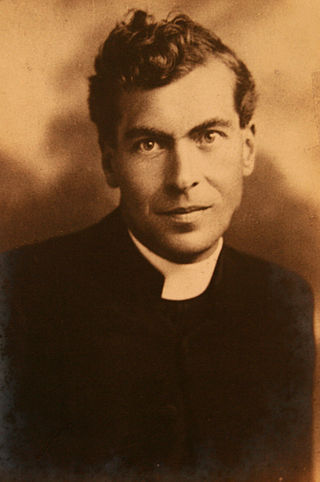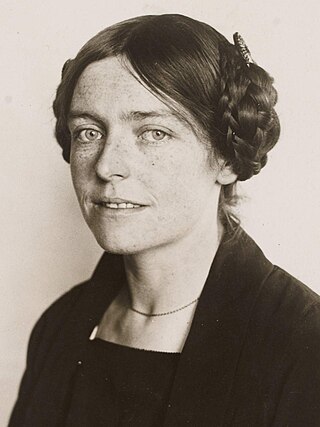Related Research Articles

Cathal Brugha was an Irish republican politician who served as Minister for Defence from 1919 to 1922, Ceann Comhairle of Dáil Éireann in January 1919, the first president of Dáil Éireann from January 1919 to April 1919 and Chief of Staff of the Irish Republican Army from 1917 to 1918. He served as a Teachta Dála (TD) from 1918 to 1922.
Events from the year 1920 in Ireland.

Terence James MacSwiney was an Irish playwright, author and politician. He was elected as Sinn Féin Lord Mayor of Cork during the Irish War of Independence in 1920. He was arrested by the British Government on charges of sedition and imprisoned in Brixton Prison. His death there in October 1920 after 74 days on hunger strike brought him and the Irish Republican campaign to international attention.

Kieran Doherty was an Irish republican hunger striker and politician who served as a Teachta Dála (TD) for the Cavan–Monaghan constituency from June 1981 to August 1981. He was a volunteer in the Belfast Brigade of the Provisional Irish Republican Army (IRA).

Peter Emmanuel Amigo was a Roman Catholic bishop in the Catholic Church in England and Wales. He founded The John Fisher School in 1929.

Ruairí Brugha was an Irish Republican and IRA volunteer who served as a Member of the European Parliament (MEP) for Ireland from 1977 to 1979, Senator for the Industrial and Commercial Panel from 1969 to 1973 and 1977 to 1981 and a Teachta Dála (TD) for the Dublin County South constituency from 1973 to 1977.

Mary MacSwiney was an Irish republican activist and politician, as well as a teacher. MacSwiney was thrust into both the national and international spotlight in 1920 when her brother Terence MacSwiney, then the Lord Mayor of Cork, went on hunger strike in protest of British policy in Ireland. Mary, alongside her sister-in-law Muriel MacSwiney kept daily vigil over Terence and effectively became spokespeople for the campaign. Terence MacSwiney would ultimately die in October 1920, and from then on Mary MacSwiney acted as an unofficial custodian of his legacy, becoming a dogged and zealous advocate of Irish Republicanism. Following a high-profile seven-month tour of the United States in 1921 in which she and Muriel raised the profile of the Irish independence movement, Mary was elected to Dáil Eireann amidst the ongoing Irish War of Independence. During debates of the Anglo-Irish Treaty, a proposed peace deal between the British and the Irish, MacSwiney was amongst the most outspoken advocates against it. During the ensuing Irish Civil War, MacSwiney supported the Anti-Treaty IRA and was imprisoned for it, resulting in her partaking in two hunger strikes herself.
Joseph Patrick Murphy was one of 22 Irish Republicans who died on hunger strike in the 20th century. He was an Officer in the Irish Republican Army who died as a result of his participation in the 1920 Cork hunger strike at Cork Gaol.

Michael Fitzgerald also known as Mick Fitzgerald, was among the first members of the Irish Republican Army and played a significant role in organising it. He rose to the rank of Commandant, Officer Commanding (OC) in the First Battalion, Cork Number 2 Brigade. He died during the 1920 Cork hunger strike at Cork Gaol. Fitzgerald led 65 men in the hunger strike which was in protest at their detention without being either charged or convicted of any crime. The hunger strike is credited with bringing additional world-wide attention to the Irish cause for independence.

Denis "Denny" Barry was an Irish Republican who died during the 1923 Irish hunger strikes, shortly after the Irish Civil War.
Seán MacSwiney was an officer in the Irish Republican Army and Sinn Féin politician.
Sands MacSwineys Gaelic Football Club is a Gaelic football team formed in 1986 and based in the Lanarkshire town of Coatbridge, Scotland. It is the longest running GAA club in Scotland. The club plays its home matches at St Ambrose Gaelic Ground.
MacSwiney is a surname. Notable people with the surname include:
The North Monastery, commonly known as The Mon, is a co-educational education campus comprising Scoil Mhuire Fatima Primary School, North Monastery Co-educational Secondary and Gaelcholáiste Mhuire AG, located at Our Lady's Mount, Cork, Ireland.

Rev. Patrick J. MacSwiney was an Irish Catholic priest, Gaelic scholar, antiquarian, historian, teacher, founder of the Kinsale Regional Museum, and benefactor of the people in the parishes in which he worked.

Patrick Cleary was an Irish missionary priest who served as Bishop of the Roman Catholic Diocese of Nancheng, China. An educator, he established a seminary in Nancheng. In 1949, the People's Republic of China was established, which was resistant to foreigners and western religion. He continued to run the mission until 1952, when he was imprisoned and then expelled from China. He returned to Ireland where he returned to teaching at St Columban's College seminary.

Máire MacSwiney Brugha was an Irish activist who was the daughter of Terence MacSwiney and niece of Mary MacSwiney. As well as an activist she was also an author and is now regarded as a person of historical importance.

Muriel MacSwiney was an Irish republican and left-wing activist, and the first woman to be given the Freedom of New York City. She was the wife of Terence MacSwiney, mother of Máire MacSwiney Brugha and sister-in-law of Mary MacSwiney. The 1920 hunger strike of her husband Terence became an international cause célèbre, and following his death she became one of the most high profile Irish republican activists in the world, widely campaigning in the United States throughout the early 1920s. Following the defeat of the Anti-Treaty IRA in the Irish Civil War in 1923, Muriel never again lived in Ireland and instead embarked upon a bohemian life on the European continent. However, this led to a falling out with her daughter Máire, resulting in a bitter custody battle when Máire attempted to return to Ireland and ultimately total estrangement after 1934. MacSwiney spent most of the 1930s in Paris, France and from 1940 onwards lived in England, where she still occasionally involved herself in left-wing and republican causes.

Peter William Crowley was an Irish revolutionary and hunger striker, holding the Guinness World Records for the longest hunger strike in history. From 11 August to 12 November 1920, Crowley, along with 10 others, underwent a hunger strike for 94 days in Cork County Gaol, demanding the reinstatement of their political status and release from prison. The 1920 Cork hunger strike took place at the same time as that of Terence MacSwiney, Lord Mayor of Cork.
The 1920 Cork hunger strike occurred in late 1920, during the Irish War of Independence, when 65 men interned without trial in Cork County Gaol went on hunger strike, demanding release from prison, and reinstatement of their status as political prisoners. Beginning on 11 August 1920, they were joined the following day by the Lord Mayor of Cork, Terence MacSwiney. A week into the hunger strike, all but 11 of the hunger strikers were released or deported to prison in England, with MacSwiney being among the latter.
References
- ↑ Hannigan, D. (2012). Terence MacSwiney: The Hunger Strike that Rocked an Empire. O'Brien Press. ISBN 9781847174376 . Retrieved 2018-04-12.
- ↑ "History Ireland". historyireland.com. Retrieved 2018-04-12.
- ↑ Chant, C. (2013). The Handbook of British Regiments (Routledge Revivals). Taylor & Francis. ISBN 9781134647316 . Retrieved 2018-04-12.